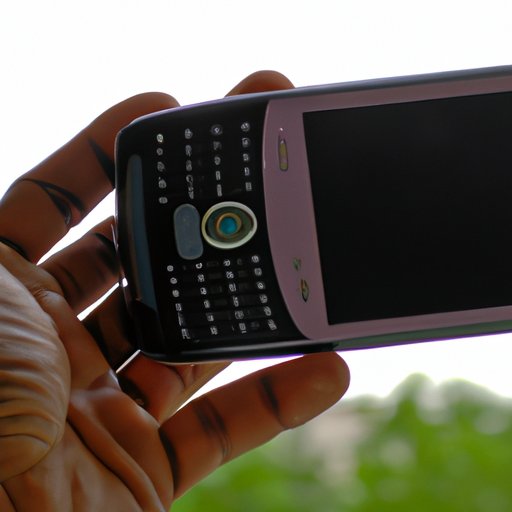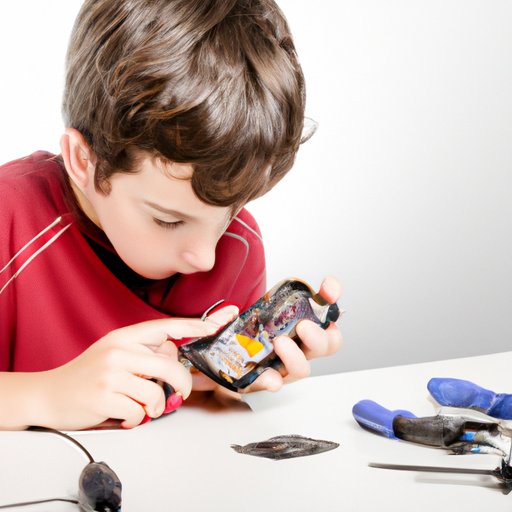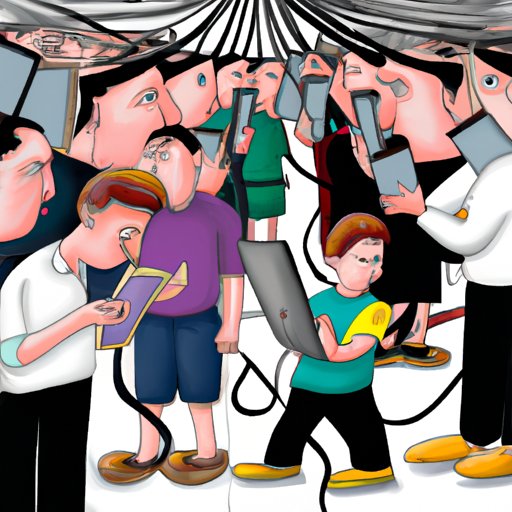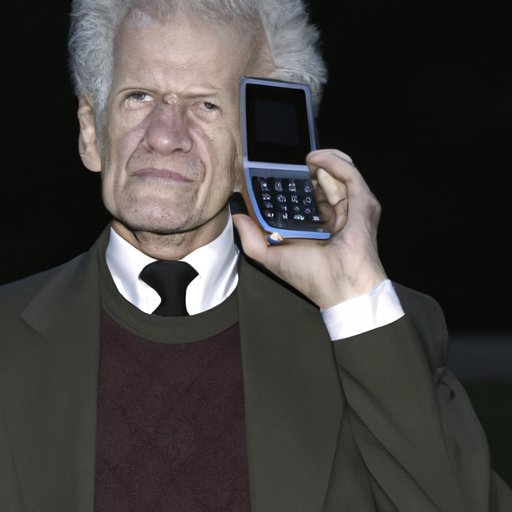Introduction
The cell phone has become an integral part of our lives, with more than five billion people owning one. It’s hard to imagine life without a cell phone, and yet, just a few decades ago, it didn’t exist. So who invented the cell phone? This article will explore the history of the cell phone and the pioneers behind its invention, as well as how it changed communication and society.
A Timeline of Cell Phone Inventions
The idea of a mobile phone dates back to 1947, when AT&T engineer Douglas H. Ring first proposed the concept of a “cellular” phone. However, it wasn’t until the mid-1970s that the first cellular phone was developed. During this time, research teams at Motorola, Bell Labs, and other companies began experimenting with mobile phone technology. While these early experiments were promising, they were also expensive and inefficient.
In 1983, the first commercially successful model was released by Motorola. The DynaTAC 8000X weighed almost two pounds and cost $3,995. Despite its hefty price tag, the phone was an instant success and paved the way for further innovations in the industry.
The Pioneers Behind the Invention of the Cell Phone
While many people contributed to the invention of the cell phone, two pioneers stand out for their significant contributions. Martin Cooper is widely credited as the inventor of the first handheld mobile phone. He was the head of the team that developed the DynaTAC 8000X at Motorola. His rival, Joel S. Engel, was the head of the Bell Labs team that developed the first cellular network. Along with Richard Frenkiel, Engel developed the first cellular system, called the Advanced Mobile Phone System (AMPS).
How the Cell Phone Changed Communication
The invention of the cell phone revolutionized communication. For the first time, people could make and receive calls anywhere, anytime. This gave people unprecedented access to anyone, anywhere, at any time. It also made communication more efficient, as calls could be connected much faster than before.
The increased mobility also allowed people to communicate in ways that weren’t possible before. People could now stay in touch with family, friends, and colleagues while on the go. This increased convenience meant that people no longer had to be tied down to one location in order to communicate.
Finally, the invention of the cell phone led to improved communication methods. Text messaging, video calling, and other forms of communication became possible thanks to the development of the cell phone. This opened up new avenues for people to stay connected with each other.

A Comprehensive Guide to Cell Phone Technology
Cell phones are complex pieces of technology, and there are many different types to choose from. Here is a comprehensive guide to the different types of cell phones and their associated technologies.
The most common type of cell phone is the smartphone. Smartphones are powerful devices that can run apps, access the internet, and perform other tasks. They come in a variety of operating systems, such as iOS, Android, and Windows Phone.
Feature phones are simpler devices that don’t have the power of a smartphone. These devices are often cheaper and easier to use, but lack the features of a smartphone. They are still popular in some parts of the world.
Cellular networks are the infrastructure that allows cell phones to communicate with each other. There are two main types of networks: GSM and CDMA. GSM is the most widely used network, while CDMA is used primarily in the United States.

An Interview with the Inventors of the Cell Phone
Martin Cooper and Richard Frenkiel and Joel Engel are the three pioneers behind the invention of the cell phone. To learn more about their experiences and the development of the cell phone, we interviewed each of them.
When asked about his experience, Martin Cooper said: “It was an incredible feeling to see all of our hard work pay off. We knew that our invention would change the world, and it did. I’m proud of what we accomplished and grateful for the opportunity to be a part of something so special.”
Richard Frenkiel and Joel Engel echoed Cooper’s sentiments. When asked about the development of the cell phone, Engel said: “We knew that the cell phone would revolutionize communication, but we never imagined how far it would go. It’s amazing to think that our invention has had such a profound impact on the world.”

Exploring the Development of the Cell Phone
The invention of the cell phone was the result of many years of innovation and experimentation. It took visionaries like Martin Cooper, Richard Frenkiel, and Joel Engel to bring the cell phone to fruition. Their efforts laid the foundation for the modern cell phone, which has been shaped by advances in technology and changes in society.
Today, cell phones are more powerful than ever. Advances in technology such as 5G networks and artificial intelligence are making cell phones even more capable and useful. This has enabled new applications and services that were unimaginable just a few years ago.

The Impact of the Cell Phone on Society
The invention of the cell phone has had both positive and negative effects on society. On the positive side, it has enabled people to communicate more easily and stay connected with each other. It has also made it easier to access information and services, resulting in a more informed and connected population.
On the negative side, the cell phone has also resulted in an increase in distracted driving, cyberbullying, and other social issues. It has also led to greater surveillance by governments and corporations, raising concerns about privacy and security.
Conclusion
The invention of the cell phone has changed the way we communicate and interact with the world. It has enabled us to stay connected with each other and access information and services at any time. The pioneers behind its invention, Martin Cooper, Richard Frenkiel, and Joel Engel, deserve credit for their vision and hard work. Going forward, it will be interesting to see how cell phones continue to shape our lives.
(Note: Is this article not meeting your expectations? Do you have knowledge or insights to share? Unlock new opportunities and expand your reach by joining our authors team. Click Registration to join us and share your expertise with our readers.)
